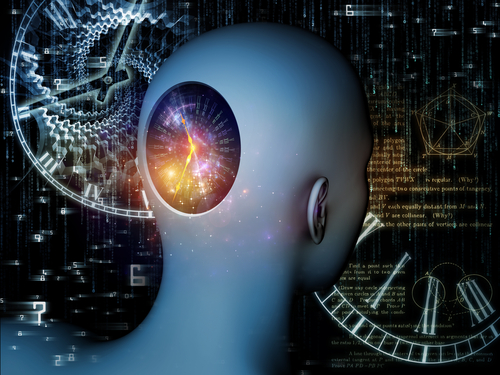New Research Explains How Our Brains Make Sense of Time
This article is more than 2 years old

Each person who gets stuck in time gets stuck alone.
― Alan Lightman, Einstein’s Dreams
Physicist poet (you don’t hear that very often, do you?) Alan Lightman wrote a gorgeous book called Einstein’s Dreams, a fictional account of different theories of time dreamily devised by Albert Einstein. Each chapter details a unique working of time and its implications for those who live in that world. By exploring the consequences of various constructs of time, Lightman demonstrates how much of our lives are dictated by this somewhat contrived notion. How many times a day do you find yourself wondering, or worrying about, what time it is? And most of us, if we keep at it long enough, develop an internal clock that wakes us up just before the alarm or generates a nagging feeling that we might be running late. But how exactly does it work? How do our brains process time?
Neuroscientists at the University of California Irvine recently published a new study that contradicts the theories scientists previously held about time. Neuroscientists have already deduced that neural systems allow us to process time, including the awareness of time. They used to believe that the “it’s getting late” feeling comes from one system in the brain. But the UC Irvine scientists think that there’s a second system at work.
Our primary inner clock is governed by the striatum, which interacts with the brain’s cortex to process information about the passage of time. In people with Parkinson’s Disease, the striatum doesn’t receive input the way it’s supposed to, and people with the disease often struggle to tell time. But being aware of time isn’t just about measuring it — it’s also about remembering it, which means that the brain’s hippocampus is involved. And while scientists have long known that the hippocampus is central to remembering events, they now believe it’s central to remembering time. Still, people who have sustained damage to the hippocampus are capable of remembering the passage of short time intervals, but not long ones, which means that the hippocampus is linked to some temporal processing, but not all.
In order to figure this out, the scientists did what all good scientists too — they found some rats. They trained the rats how to tell time — or rather, to measure time. They trained rats to respond to odors that corresponded to the passage of different intervals of time, and rewarded the rats who could accurately indicate how much time had passed. Then the scientists temporarily chemically disabled the hippocampi of some of the rats to see whether it impaired their ability to gauge the passage of time.
The rats with the deactivated hippcampi could distinguish between very different time intervals (2 minutes as opposed to 12 minutes), but struggled, especially compared to the control group, when it came to gauging the difference of similar time periods (8 minutes as opposed to 12). The longer the intervals in general, the worse the rats with the deactivated hippocampi did. It would seem, then, that the hippocampus is necessary for a fine-tuned sense of time’s passage, but not required to tell the difference between the time it takes to run to the market and the time one might spend in the office on a workday. But here’s what’s really strange — the chemically disabled rats actually did better than the control group when it came to telling the difference between similar time frames of small intervals (60 seconds as opposed to 90). This result is a bit puzzling, but the answer may be that our ability to measure time is far more complicated than we thought. That second internal clock seems to work alongside the one previously identified, but these scientists think that the two systems may even be in competition.
This makes me think again about Lightman and another passage from Einstein’s Dreams.
In this world, there are two times. There is mechanical time and there is body time.
They do not keep clocks in their houses. Instead, they listen to their heartbeats. They feel the rhythms of their moods and desires.Then there are those who think their bodies don’t exist. They live by mechanical time. They rise at seven o’clock in the morning. They eat their lunch at noon and their supper at six. They arrive at their appointments on time, precisely by the clock.











